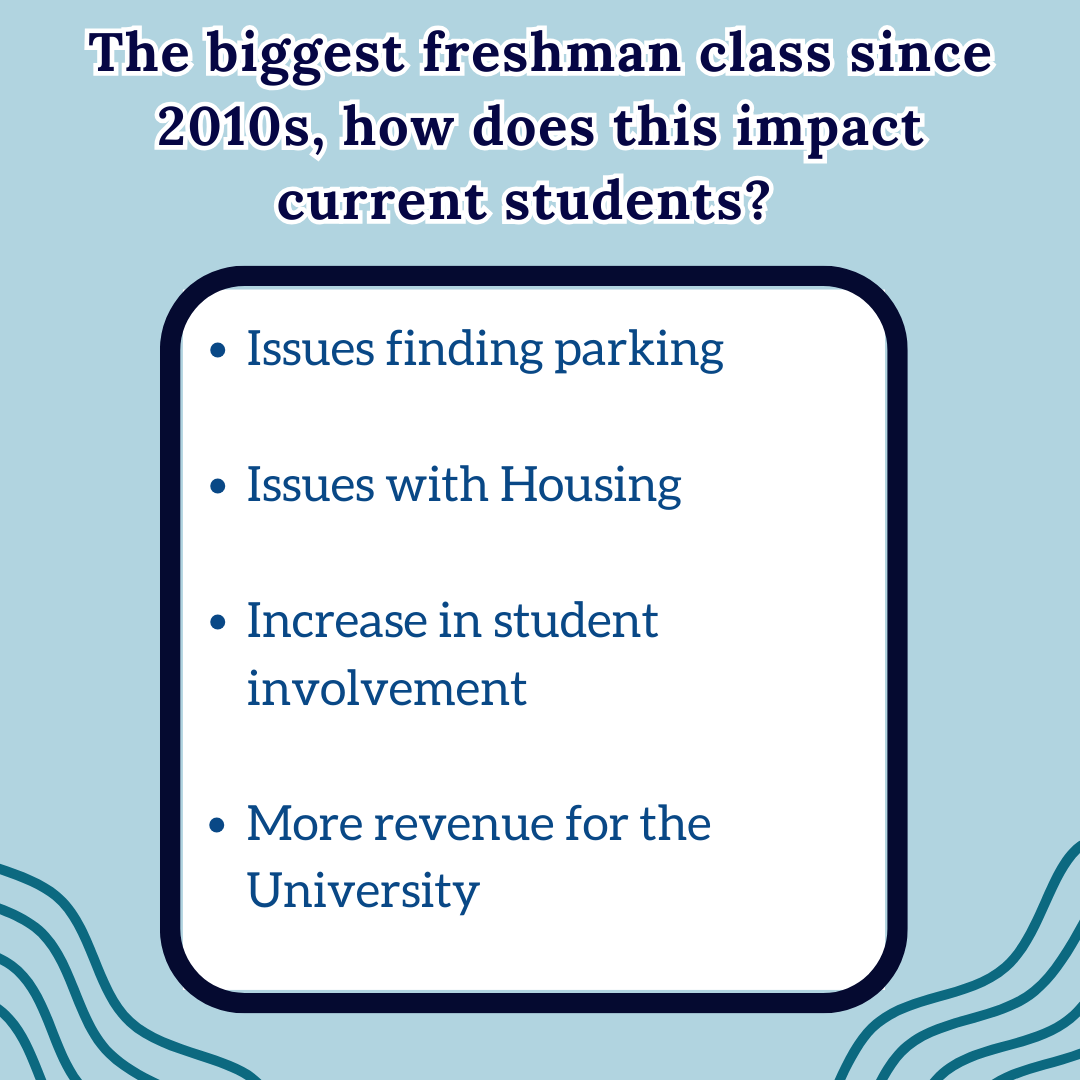Murray State welcomed the class of 2027, the biggest freshman class to campus in its history — 1,660 students, to be exact. Numbers like these haven’t been seen since the early 2010s. On one hand, this could be a great bellwether for the University turning over a new, post-pandemic leaf. On the other hand, the new arrivals have brought with them interruptions to the already existing student population: the ones who survived a global pandemic, campus closures, and a more subdued student life than most, if not any, generation before them.
Issues that were already a problem for returning students – like finding a good parking spot — have become even more exacerbated, like finding any parking spot at all. Students have already started to complain about the limited number of spaces, even in previously vacant areas such as the parking lot behind where Springer Hall once stood, or at General Services. Some have even had to park at the stadium’s purple parking zone, despite having already paid the hefty $200 price tag for the more “accessible” yellow parking permit.
Even housing has seen the effects of these growing pains. Some upperclassmen who had previously reserved private rooms on-campus were transferred to off-campus apartments, like Station 74, to offset the deluge of incoming students.
For students who had reserved private rooms the semester prior, at best there loomed an air of anxiety and confusion on if those arrangements would be honored. At worst, they found themselves with an unlikely roommate, sometimes without any notification beforehand.
A growing student body can be good for everyone; it can breathe new life into clubs and organizations (including here at The News), generate more money for the University, and allow more people to pursue their passion and earn degrees. But expanding the freshmen body at the cost of pushing returning students out isn’t a fair trade to anybody.
Student comfortability shouldn’t be discounted; it should be paramount. Especially when we remember that today’s seniors were once freshmen, too—during a global pandemic. In a real sense, we earned it.
So, what can we do?
Individually, not much. We can bring our concerns to our student representatives in our residential halls, or even up to the Student Government Association (SGA) and the Residential College Association (RCA).
We can collectively start a petition to place a cap on the number of parking passes sold. We have gotten the administration’s attention before on larger issues. Collective action can bring collective progress—but we have to do it together. We all have to make this campus the home we want it to be.
And look, I get it; at the end of the day, we will all inevitably become seniors reminiscing about the way campus was and the bygone (four year) era. Even you, class of 2027, will someday gripe and groan about the way those future freshmen are stealing all the prime parking spots, pushing returning students out of on-campus housing, and the ridiculous dining wait times.
As the dynamics of this student body grow, so should the University. For the first time in University history and in recent memory, we have more students than we have ever experienced. Why not build solutions that fit this new experience, too?


























































































